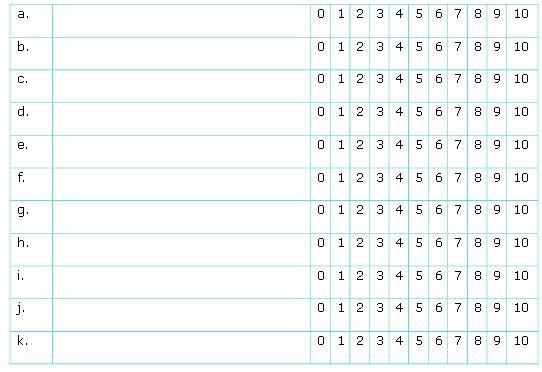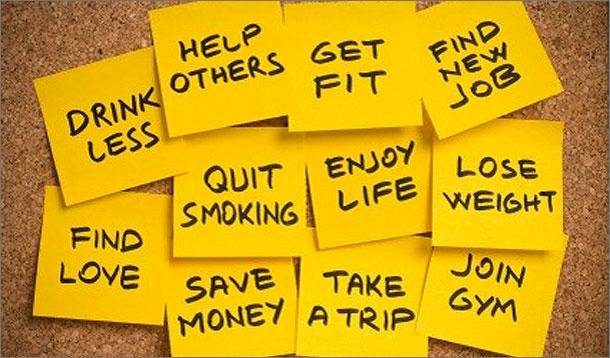By
Marelisa and Wanda Thibodeaux
Audits are standard in both personal and business finance, but in many ways, life audits are much more crucial. That’s because life audits evaluate well-being not just in one area but in basically everything. They can mean massive changes to relationships, work, activities, and even what you put on your plate.
Life has a funny way of getting in its own way: we get so busy, sometimes we forget to look up. That’s why every now and then it’s important to take a step back and check in: How are we doing? Where are we going? What’s important now that perhaps wasn’t before? Life audit is an exercise in self-reflection that helps you clear the cobwebs of noisy, external goals and current distractions, and revisit or uncover the real themes and core values that drive and inspire you. Life audit is a spring-cleaning for the soul. Architecting a life takes time, after all. It is time for you to audit your life….and stop copying others.
What are you worth? How would you evaluate your life? When was the last time you stopped to take stock of yourself?
Of course, an easy way to calculate your worth is by subtracting your liabilities from your assets in order to determine your net worth.
When you’re doing this for financial reasons, your assets are anything of economic value which you own, including real estate, stocks, money you’re owed, and so on. Your liabilities are the things that you owe, such as credit card debt, your mortgage, and your car loan.
However, your net worth only gives you an assessment of how you’re doing in one very specific area of your life. It certainly doesn’t give you the whole picture. Is your life really worth much if you have a high net worth but no family or friends to share it with, or if you’ve traded your health for your wealth? How about if you have no leisure time or any spiritual life to speak of?
What if you were to define assets and liabilities in ways that don’t involve economic value? For example, your good habits are assets, while your negative habits are liabilities. Among your assets you could list the following:
- Meditation.
- Keeping a gratitude journal.
- Spending thirty minutes a day working on a hobby you enjoy.
Among your liabilities you could list the following negative habits:
- Procrastination.
- Smoking.
- Hitting the snooze button when the alarm rings in the morning.
Another thing you can do is to list your positive character traits as assets, including things such as the following:
- Honesty
- Humor
- Optimism
On the other hand, your negative character traits would be liabilities. These could include things such as the following:
- Impatience
- Indecisiveness
- Being Overemotional
Conducting a life audit can help you determine whether you’re in control of your life and whether your life is headed in the right direction. Below you’ll discover how to conduct a life audit.
If you haven’t conducted your own life audit, these are some of the top questions you need to be asking yourself.
- What are my assets and liabilities (not just things but also personality traits, skills, habits, etc.)?
- How could I be kinder to or support myself?
- How could I be kinder to or support others?
- What would I still like to learn and how could I do so?
- Do I have one to five good friends I can trust and count on?
- Do I feel energized, neutral, or let down about my work?
- Am I in good health or pursuing it to the best of my ability?
- Do I spend my free time doing a variety of enjoyable activities?
- What emotion is dominant for me?
- What do I get excited about consistently?
- What core principles (e.g., honesty) do I have, and how does my way of living reflect them?
- What would I do with more or less money?
- What am I grateful for and why?
- What do I regret and why?
- How close is what I’m doing professionally to what I dreamed of doing?
- Am I consistently challenging myself?
- What fears do I have?
- What are the top five words I think others would use to describe me?
- What are the top five words I would use to describe myself?
- Are the motivations behind my original goals still present?
- What do I find myself daydreaming about when I’m supposed to be doing other things?
- What is my financial or material standard of living, and have I achieved it?
- What in my current environment do I like or dislike?
- How am I influencing others for better or worse?
- Is my income stable?
- How is my weight?
- Do I feel confident in my appearance?
- Do I feel like I have worth?
- Can I do most things with independence and confidence?
- Am I able to make decisions easily?
- Am I able to lead myself and others spiritually?
- What goals do I have?
- Why didn’t I meet goals I’ve previously had?
- Am I engaged in personal development?
Life Areas to Audit
There are many areas in which you can conduct a life audit. These include the following:
- Audit how you spend your time.
- Audit your productivity.
- Audit your effectiveness.
- Audit your skills.
- Audit your education.
- Audit your health.
- Audit your finances.
- Audit your fitness level.
- Audit your habits.
- Audit your character.
- Audit your relationships (with your family and friends).
- Audit your living conditions (how clean and organized your home is, and how comfortable you feel in your home).
- Audit your creativity.
- Audit how happy you are.
- Audit your energy level.
- Audit your career.
- Audit your spiritual life.
- Audit your leisure time.
- Audit how well you’re doing in terms of achieving your major life goals.
- Audit how much fun you’re having.
Process for Conducting a Life Audit
The seven-step process for conducting a life audit is the following:
1. Decide what aspect of your life you’re going to audit, or evaluate (I gave you several ideas on areas you can choose to audit, above).
2. Decide on the metrics that you’ll be using to measure how well you’re doing in your chosen life area. For example, in the area of fitness you could use measurements such as your weight, your waist circumference, and your percentage of body fat.
In order to measure your happiness you can set an alarm to ring on your smart phone every hour; each time the alarm rings stop and assess how happy you feel at that moment in time on a scale from 1 to 10.
You can measure how creative you´re being by your output, such as whether you’re writing 1,000 words of your novel a day. Another way to audit your creativity is by the the amount of time that you spend each day being creative. As an illustration, you could choose to give yourself a high score in creativity if you spend at least one hour a day working on a creative project.
Another method that you can use in order to conduct an audit is to simply ask yourself a series of questions related to the life area that you’re auditing. As an illustration, if you’re auditing your relationship with your friends, you could ask yourself the following questions:
- Do I remember my friends’ birthdays and special occasions?
- How often do I speak to my friends on the phone?
- How often do I see my friends?
- Are my friends supportive of me and my goals? Am I supportive of them?
- Do my friends have healthy life habits?
- Do my friends enrich my life?
3. Design a form that you’re going to use for your audit. It can be something very simple, such as the following:

4. Conduct your audit. If you feel that you can’t be completely truthful–after all, it can be incredibly difficult to evaluate yourself–, ask a trusted friend or family member to help you.
5. Once you’ve determined where you are now, decide where you want to be. For example, if your audit reveals that you’re overweight and have an unhealthy waist circumference, determine how much you want to weight and how many inches you want to lose from your waist.
6. Create an action plan for getting to where you want to be. What are the steps that you need to take in order to move from where you are now, to where you want to be? As an illustration, your action plan in the area of fitness could include things such as the following:
- Change your diet.
- Buy a treadmill and walk on it for half-an-hour every morning as you watch the morning news.
- Consult a friend who’s in great shape and ask them for tips.
- Drink more water.
7. Carry out your action plan and give yourself audits along the way to make sure that you’re making progress. Make adjustments as needed.
Conclusion
Conducting a life audit can mean the difference between living life by default or living the rest of your life by design. Life audits aren’t something you need to finish overnight. They’re supposed to make you really consider what you’re doing, where you can improve or have strengths, and what you want or need. That can take some time to sort out mentally and emotionally. So if going through these questions takes you a while, you’re probably on the right track. You don’t have to look at these questions in any particular order, either. Just be honest with yourself for each one, have determination, and commit to moving forward.
